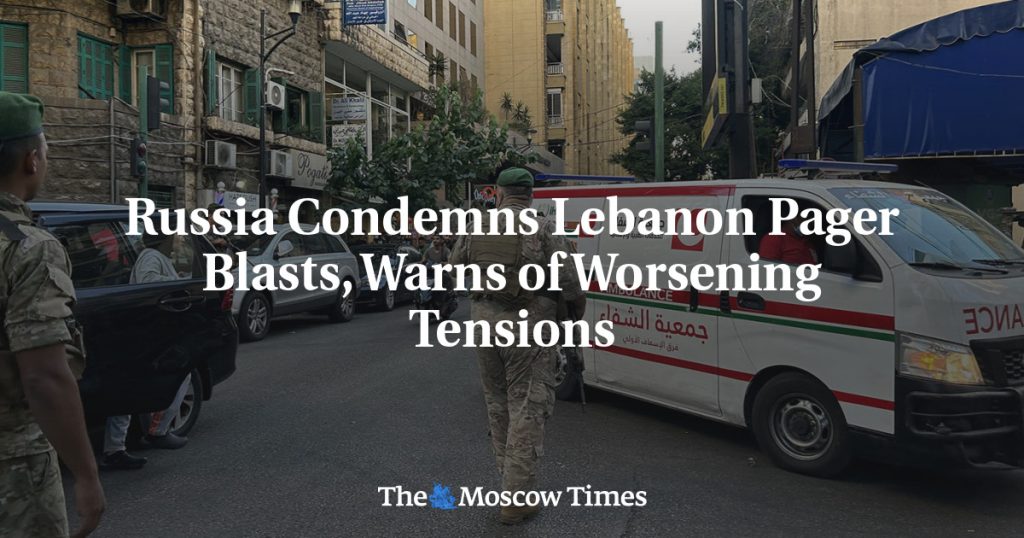Authorities in Moscow strongly condemned the deadly attacks that occurred in Lebanon, where pagers used by the militant group Hezbollah exploded near-simultaneously across the country. The blasts, which occurred the day before, were seen as a serious risk to further destabilizing an already volatile region. Hezbollah and the Lebanese government blamed Israel for the attack, although there was no immediate comment from Israel. Analysts suggested that the explosions may have been caused by explosives concealed in the devices during production or delivery.
Kremlin spokesman Dmitry Peskov addressed the situation, stating that whatever had happened was likely to lead to an escalation of tensions in the region. He noted that the Middle East is already in an “explosive situation,” and any incident such as this has the potential to trigger further conflict. Russia’s Foreign Ministry also released a statement denouncing the blasts, calling them an unprecedented attack on Lebanon and its citizens. The Ministry described the act as a flagrant violation of Lebanon’s sovereignty and a challenge to international law, especially with the use of unconventional weapons.
Foreign Ministry spokeswoman Maria Zakharova expressed concern over the growing tension along the Lebanese-Israeli border, stating that these irresponsible actions could lead to extremely dangerous consequences and provoke a new round of escalation. She called for all parties involved to exercise restraint in order to prevent further violence. Russia’s close relations with Hezbollah-backer Iran have influenced their stance on the situation, with concerns over the potential for a regional war breaking out in the Middle East.
The use of unconventional weapons in the attacks in Lebanon raised alarm in Moscow, as it could potentially lead to a more significant and widespread conflict in the region. The Russian authorities emphasized the importance of upholding international law and respecting the sovereignty of nations in order to prevent further destabilization. The condemnation of the attacks and the call for restraint from all parties involved highlighted Russia’s commitment to promoting peace and stability in the Middle East.
The situation in Lebanon posed a significant challenge for Russia, as they navigate their relationships with various actors in the region, including Hezbollah, Iran, and Israel. The need to balance these complex relationships while advocating for peace and stability in the region required delicate diplomacy. The Russian government’s firm stance against the attacks and their call for all parties to exercise restraint demonstrated their commitment to preventing further escalation of violence in the Middle East.
Overall, the condemnation of the attacks in Lebanon by Moscow reflected Russia’s concerns about the potential for further instability in the region. The use of unconventional weapons and the implications of these attacks on Lebanon’s sovereignty raised alarm in the Russian government. By calling for restraint and emphasizing the importance of upholding international law, Russia sought to play a constructive role in de-escalating tensions and promoting peace in the Middle East. Their close relationship with Hezbollah-backer Iran also influenced their response to the situation, as they worked to navigate complex relationships while advocating for stability in the region.














